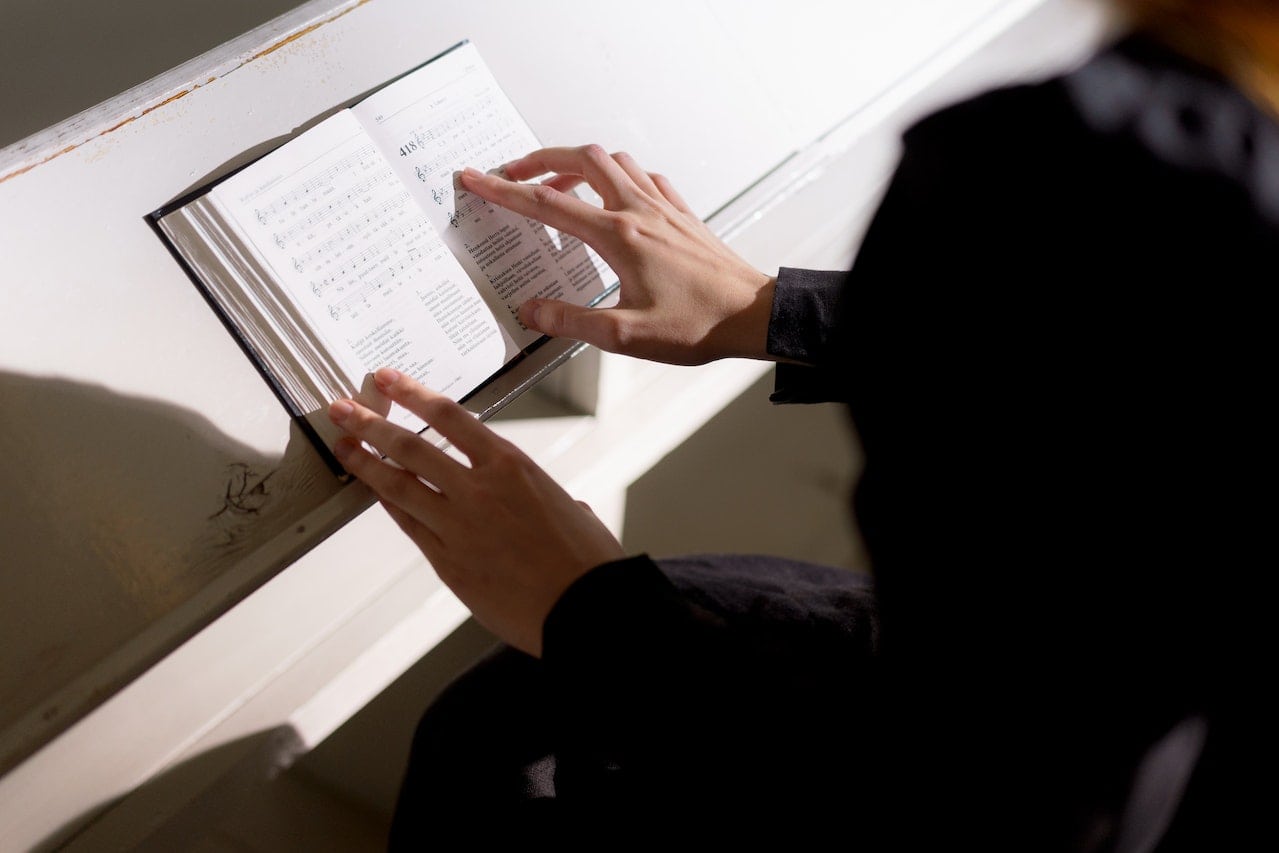Five Tips for Practicing Your Choir Music
We’ve all been there. That moment when a choir director asks you to take out your music, you begin singing, and they quickly cut you off with a disappointed look on their face. “It’s clear you didn’t practice your music since last rehearsal,” they say, maybe even directing their gaze straight to your section. Practicing your choir music can be a daunting task if you don’t have the tools to help guide your practice.
With this in mind, I present to you five of my favorite tips for practicing your choir music:
I’m Ready to Practice…Now What?
You’ve decided it’s time to practice your choir music. You’ve marked your choir music and claimed your practice room or locked yourself in your bedroom or situated yourself in front of the family piano with your choral music opened and ready to go. Now what? In the post below, I’ll walk you through how to establish a practice plan, practice your music in small sections, give yourself productive breaks, ask for help when necessary, and be kind to yourself throughout the process.
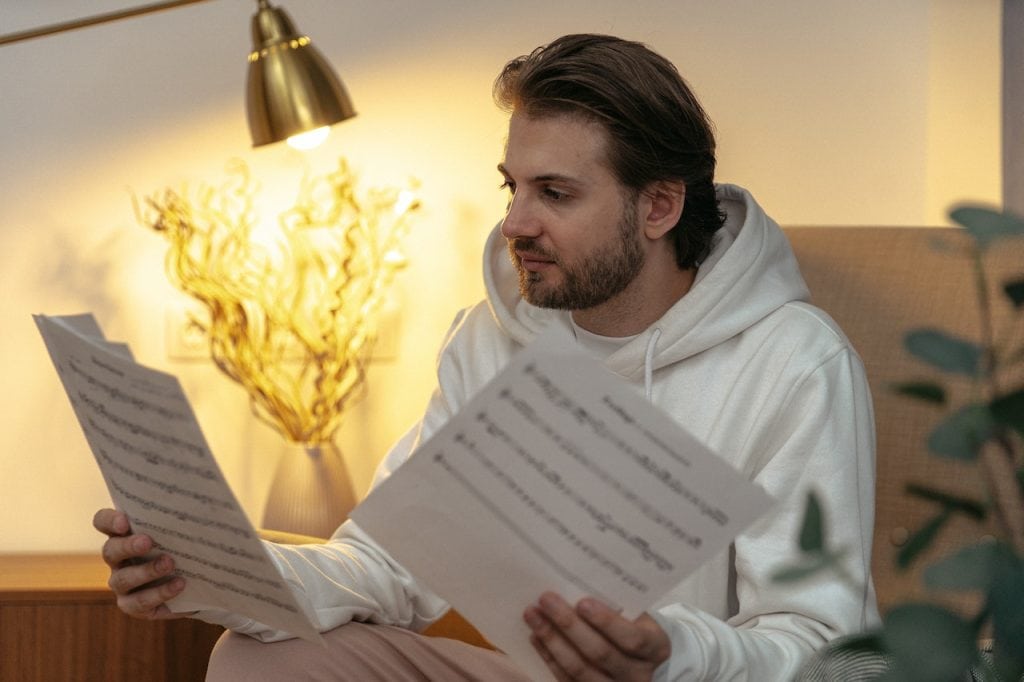
Set A Practice Plan
Before you practice, you need a game plan. Without a practice routine, it is easy to get distracted or focus too much on one piece or simply lose track of time.
When establishing your practice plan, ask yourself the following questions:
- What has my choir director asked my ensemble to work on?
- What do I know I need to work on?
- What do I want to get out of this practice session?
- What is my focus? (For example: notes, rhythms, tone, accuracy, resonance, memory)
Now, using the information from your answers, craft your plan.
Start with a Warm-up
Likely, you’re coming into this practice session cold. Start by warming up your voice and your body. Don’t have the piano skills or vocal warm-up knowledge to warm yourself up? I’ve got your back. Check out these great warm-up resources:
- Here is a YouTube mix of 5 minute vocal warm-ups on YouTube
- Try out any Cheryl Porter voice coach videos from TikTok
- Here are some quick standing stretches that you can do anywhere
- Try out some square breathing to get your air moving
Choose Two to three focus pieces
Plan to spend five to ten minutes on each piece. We’re looking for quality time, not quantity time, during your practice session.
Here are a few ideas to help you make the most of this time:
- Use a piano, pitch pipe, tuning fork, or music app to find your first note(s). Don’t read music? That’s okay! Use a guide like this to help you find that first note.
- Practice in small sections (more detail on this below)
- Listen and sing along to recordings if you are not comfortable singing on your own. If you are unsure of the quality of the recording, check in with your director. They will be so happy to hear that you are practicing on your own.
Looking for a bit more guidance? Join my email list below and get my free Choir Music Practice Plan Worksheet!

Practice In Chunks
When working on your two to three pieces, choose small sections of the piece to focus on. Check these small sections for note and rhythmic accuracy, security within your portion of the harmony, and maybe even memorization.
Here’s what it might look like when practicing your choir music in chunks:
- Sing through measures 1-12 to refamiliarize.
- Focus on measures 1-4 for notes and rhythms. Isolate problem spots. Repeat until comfortable.
- Focus on measures 5-8. Isolate problem spots. Repeat until comfortable.
- Combine measures 1-8. Isolate problem spots. Re-focus on smaller section if larger section did not work well.
- Focus on measures 9-12. Isolate problem spots. Repeat until comfortable.
- Combine measures 5-12. Isolate problem spots. Re-focus on smaller section if larger section did not work well.
- Combine measures 1-12. Isolate problem spots. Re-focus on smaller section if larger section did not work well.
Notice that the only time we sing through the full selection is at the beginning and the end. Singing straight through over and over might be helpful when memorizing, but otherwise it wastes precious practice time. Why rehearse the beginning over and over again if you already have it? Isolate your challenge spots, work through them, then celebrate your success by performing a final run-through.
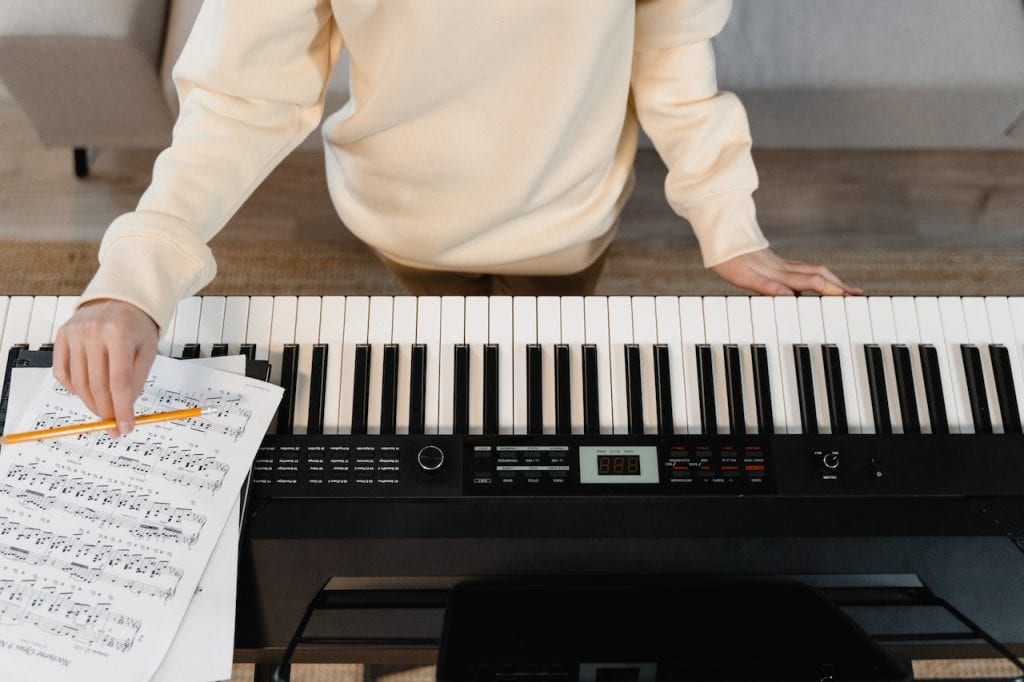
Take Breaks
I like to schedule small breaks for myself in any practice session, no matter how long I am practicing. These small breaks are not only great for my mind and attention, but they are helpful for my vocal and hearing health as well.
Here are a few productive short break ideas to scatter throughout your practice session:
- Listen to a recording of the piece you are working on and audiate your part and/or listen for stylistic elements you may borrow
- Take a short walk around the building, checking in with your breathing throughout
- Try a two minute meditation using an app or video
- Fill up your water bottle and hydrate
- Stretch with a specific focus on breathing and resonance spaces
- Give yourself a laryngeal massage
Use these short breaks to reset your voice and your mind, allowing for more productive and enjoyable practice sessions.
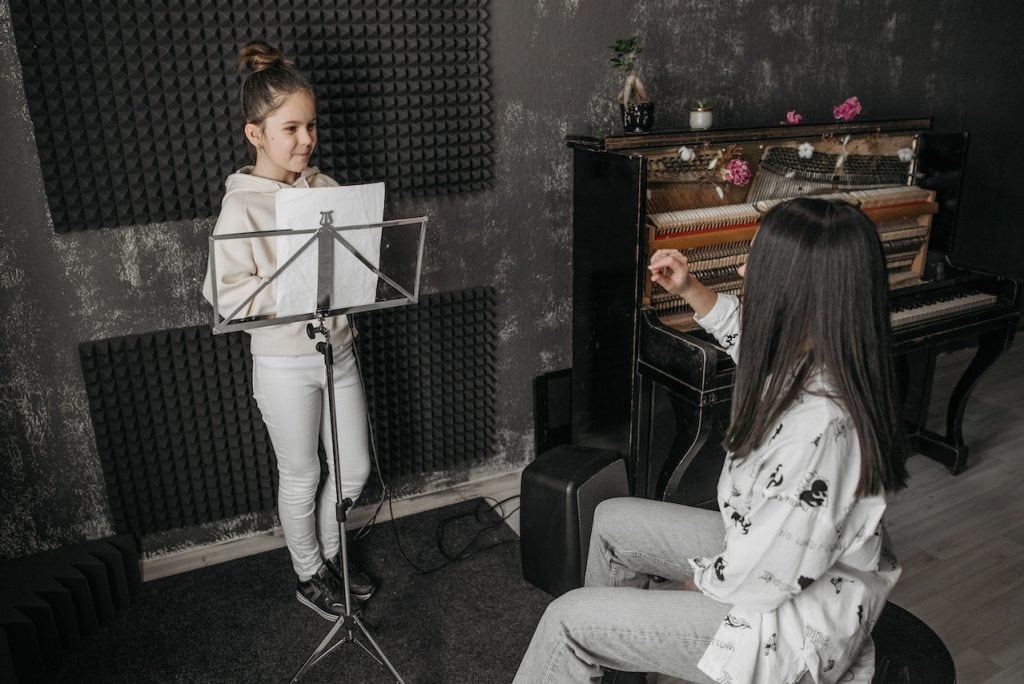
Ask for Help
Your choir is your team. Your team wants to see you do well, because your success is the collective ensemble’s success. If you are struggling while practicing, there is absolutely no shame in finding someone on your team to ask for help. In fact, I’d bet that anyone you ask would be delighted to help.
Here are a few ways you might ask for help with your practice:
- Ask a section leader to record themselves singing a passage that is giving you trouble.
- Ask a choir director to identify areas in a piece that you might rehearse between now and your next rehearsal.
- Ask a choir member who plays the piano to create a rehearsal track for you.
- Ask someone in your section to join you for a practice session
When asking for help, it is always nice to give a bit of notice – especially if you are asking for a recording. Asking for a recording the day before you need it is stressful, but with a week or so notice, is generally quite doable.

Be Kind to Yourself
Not every practice session is going to go smoothly. It is so easy to get down on yourself when practicing your choir music, especially if you are struggling with difficult music or concepts.
Here are a few ways you can be kind to yourself while practicing your choir music:
- Set an intention when you begin your practice and check back in with that intention throughout (i.e. breathe, stay positive, learn, express). Choose something that you know you can be successful with and praise yourself for succeeding! Maybe even write your intention on a sticky note to remind yourself throughout your practice.
- When you are struggling, repeat a mantra to yourself. Some of my favorites are “You can do this,” “Take A Breath,” and “It’s just Music.”
- When you get frustrated, take a deep breath, do a stretch, reset your voice, and begin again.
- Allow yourself to take breaks – for your mind and body.
- Have a piece on hand to practice for funsies – even if it is not a choral piece.
In Conclusion…
Practicing your choral music doesn’t have to be intimidating! By setting a plan, breaking down your work into small, manageable chunks, taking breaks, asking for help, and being kind to yourself, you can make your practice efficient and enjoyable. Still not sure how to proceed? Here’s my ideal 30 minute practice plan – give it a shot yourself, then adjust to meet your own needs and preferences.
- Warm-up (physical and vocal), set an intention 5 minutes
- An easy piece to ease you in and make you feel successful 5 minutes
- Stretch/breathe/re-set 30 seconds
- A challenging piece while you are at the peak of your attention span 10 minutes
- Break for a walk around the building/water bottle refill/change of place 3 minutes
- One more piece 5 minutes
- Reward yourself for practicing with a few minutes of singing something for funsies 2 minutes
I’d Love to Hear from You!
Have you tried any of these tips for practicing your choir music? How did they go? What other approaches do you love to take when practicing? Let me know in the comments section below!
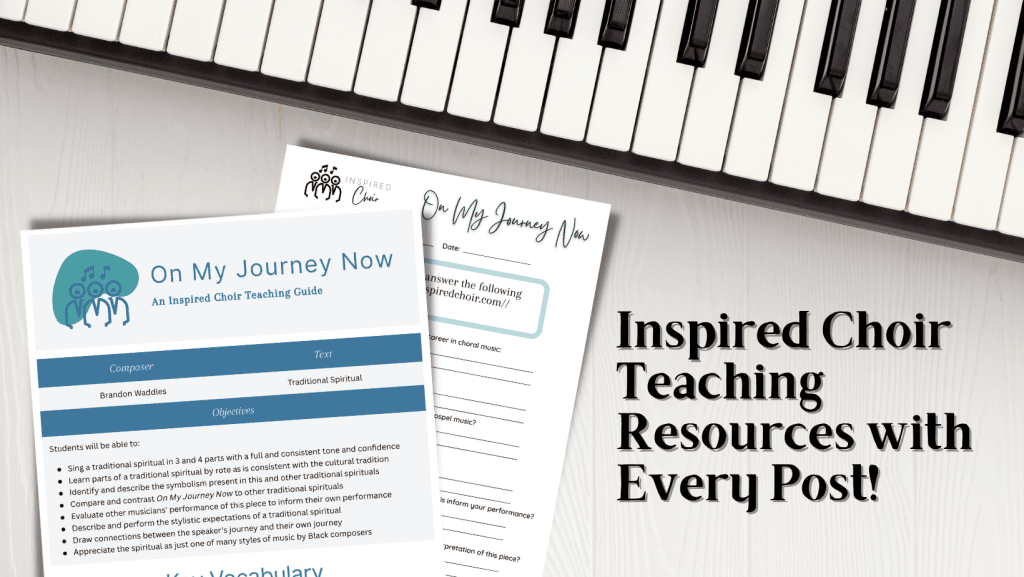
Teacher Resources
Free Practicing Your Choir Music Worksheet
Reading Comprehension Worksheets pull five key points from the blog post above. Additionally, this worksheet asks singers to consider practice plans they can make with the info from this post. Fill in the form below and get a link to a folder including the Practicing Your Choir Music worksheet and all 2023 Jan/Feb posts worksheets.
Check out the Inspired Choir Shop for lesson plan bundles, choir worksheets, and repertoire teaching Guides!
Enjoying the Inspiration?
I have more Take Five For Inspiration Posts for you! Take a look:

